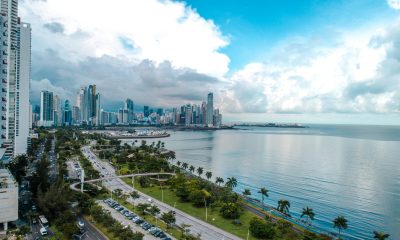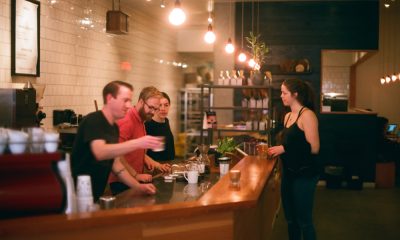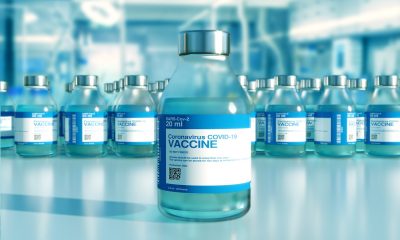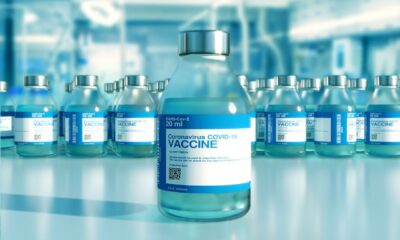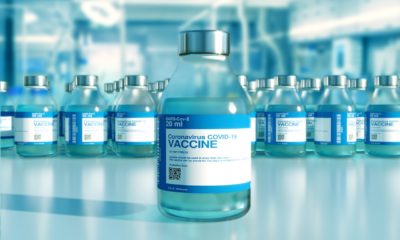Biotech
Panama begins trials of a COVID-19 vaccine next week
Next week, Panama will start human trials of a COVID-19 vaccine developed by a German biotech company. An impressive number of 4,000 volunteers have signed to take part in the trials. Testing the vaccine in the Panamanian population would allow knowing that the vaccine is safe for the Latin American population and that it produces an antibody and cell response against this virus.
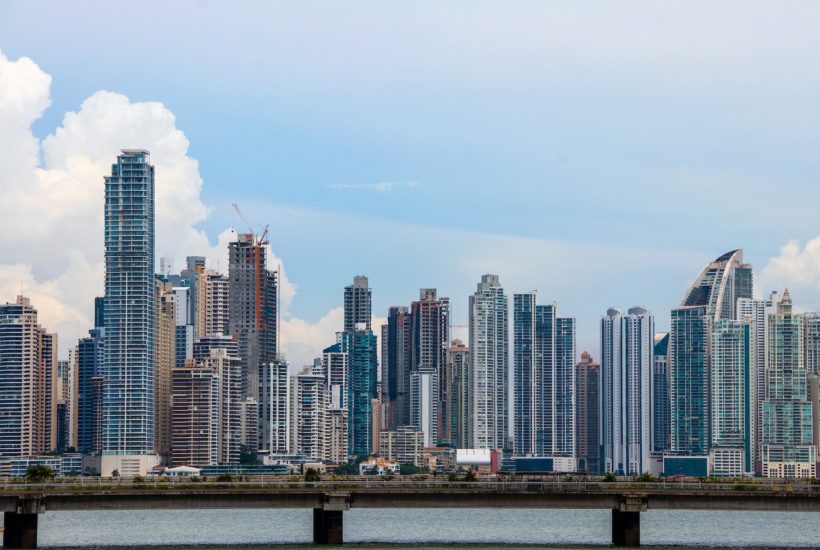
The consultant of the Consortium of Vaccines COVID-19 Panama, Eduardo Ortega, confirmed that next week would be starting in Panama the trial studies of the vaccine against COVID-19.
“According to the plan, researchers have to start the study next week,” said Ortega on the TVN newscast, who reported that the vaccine that would be tested in Panama is in phase two of research. “This is a relatively small study because it is phase one and two,” said the specialist.
If you want to stay up to date with the latest discoveries in the biotech sector, and when a COVID-19 vaccine will be released on the market, download for free the Born2Invest mobile app. Find the most important economic news and stay on top of everything that matters to you.
Panama was selected for COVID-19 vaccine trials, said Sáez-Llorens
He pointed out that at this moment they are just waiting for the vaccines and supplies to arrive in the country so they can start the laboratory tests that would be carried out in Panama. According to the specialist, approximately 250 volunteer subjects were planned to participate in this research, but the number of volunteers of all ages and both sexes exceeded 4,000. The response in Panama was impressive.
“We planned to recruit approximately 250 subjects and there is a list of approximately 4,000,” emphasized Ortega, who indicated that it is important that the study has a balance of participation of both sexes: female and male. The vaccine is from a German biotechnology company. Its technology is based on rebonucleic acid and has also been tested in two other countries: Germany and Belgium, making Panama the third country where it will be tested.
Ortega explained that with these tests, the Panamanian researchers would be contributing to the development of a vaccine to stop this pandemic, which is the “dream” of any researcher. He added that testing the vaccine in the Panamanian population, in turn, would allow knowing that the vaccine is safe for the Latin American population and that it produces an antibody and cell response against this virus.
“That is important because most of the people who have died in the United States, in North America, are Latin American and African American. However, most studies are recruiting Europeans or North Americans, whites or Asians. So we need to have Panamanian information, that’s critical,” he said.
On the other hand, it places Panama in the best position to negotiate with those who are producing the vaccine, either bilaterally or as a group, to acquire it, with previous experience that it is safe and produces antibodies in the Latino population.
Several countries are in a race against time to develop the vaccine that would stop the pandemic
Currently, there are six vaccines being tested in phase three research: Sinovac /Biotech working with the Butantan Institute; AstraZeneca (Oxford University); Moderna (US National Institute of Allergy and Infectious Diseases); Sinopharm (Wuhan Biological Products Institute; Pfizer (BioNTech); and Sinopharm (UAE Government).
According to Ortega, different technological platforms are being used for the research of vaccines against OVID-19. For example, he mentioned that Sinovac uses the inactivated virus; Moderna uses the ribonucleic acid technology and AstraZeneca’s vaccine is developed based on the viral vector technology.
__
(Featured image by Ron-01 via Pixabay)
DISCLAIMER: This article was written by a third party contributor and does not reflect the opinion of Born2Invest, its management, staff or its associates. Please review our disclaimer for more information.
This article may include forward-looking statements. These forward-looking statements generally are identified by the words “believe,” “project,” “estimate,” “become,” “plan,” “will,” and similar expressions. These forward-looking statements involve known and unknown risks as well as uncertainties, including those discussed in the following cautionary statements and elsewhere in this article and on this site. Although the Company may believe that its expectations are based on reasonable assumptions, the actual results that the Company may achieve may differ materially from any forward-looking statements, which reflect the opinions of the management of the Company only as of the date hereof. Additionally, please make sure to read these important disclosures.
First published in LA ESTRELLA DE PANAMA, a third-party contributor translated and adapted the article from the original. In case of discrepancy, the original will prevail.
Although we made reasonable efforts to provide accurate translations, some parts may be incorrect. Born2Invest assumes no responsibility for errors, omissions or ambiguities in the translations provided on this website. Any person or entity relying on translated content does so at their own risk. Born2Invest is not responsible for losses caused by such reliance on the accuracy or reliability of translated information. If you wish to report an error or inaccuracy in the translation, we encourage you to contact us.

-

 Markets5 days ago
Markets5 days agoWeather-Driven Supply Outlook Lifts Coffee Markets in Brazil and Vietnam
-

 Markets2 weeks ago
Markets2 weeks agoCotton Market Weakens Amid Demand Concerns and Bearish Trends
-

 Business2 days ago
Business2 days agoTopRanked.io Weekly Affiliate Digest: What’s Hot in Affiliate Marketing [Best Technology Affiliate Programs]
-

 Fintech1 week ago
Fintech1 week agoFintech Alliances and AI Expand Small-Business Lending Worldwide
